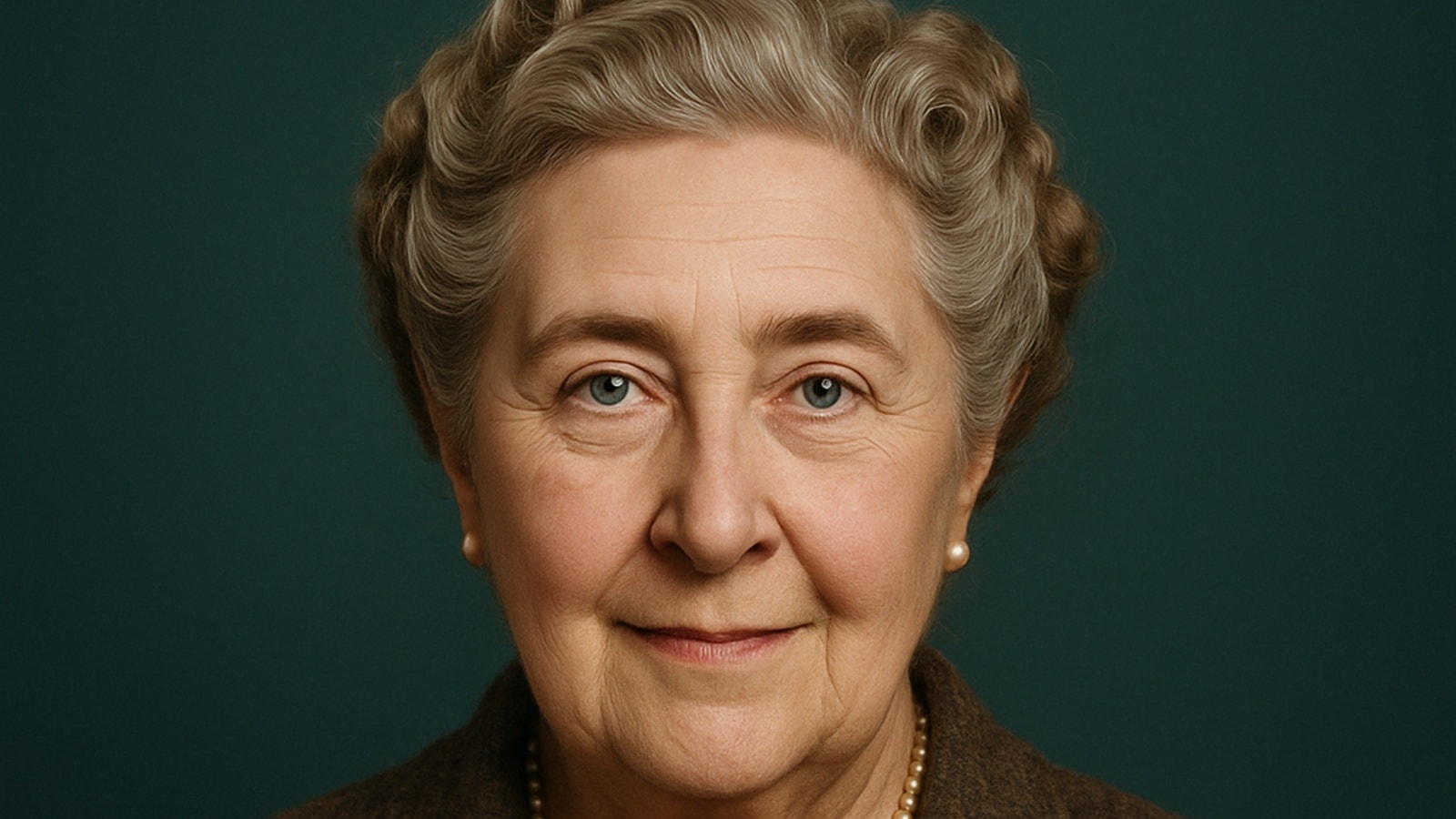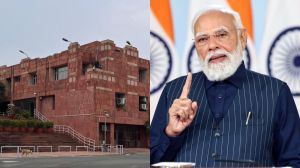In 1926, Agatha Christie vanished for eleven days, sparking a nationwide manhunt and endless speculation. Nearly a century later, she has “returned”—not in flesh and blood, but through artificial intelligence. The BBC’s latest project, Agatha Christie On Writing, has resurrected the Queen of Crime as a digital tutor, igniting a fierce debate over whether it this is a loving tribute, or AI taken too far.
The controversy largely stems from the fact that Christie was notoriously private. She avoided interviews, shunned author photos, and once was turned away at the door of her own play’s premiere party because she was too shy to identify herself. “My chief dislikes are crowds, loud noises, and cinemas,” she once confessed. Despite her real-life reticence, she crafted some of fiction’s most audacious detectives: the flamboyant Hercule Poirot (“an egocentric creep,” she called him) and the unflappable Miss Marple.

Now, the woman who spent a lifetime dodging publicity is back in the limelight. Whether against her will or with her blessings, depends on whom you ask.
The BBC’s AI séance
BBC Maestro, the corporation’s answer to MasterClass, has collaborated with Christie’s estate to create a writing course “taught” by the late author. Using AI-enhanced recordings, archival footage, and an actress (Vivien Keene) chosen for her biometric resemblance, the project stitches together a simulacrum of Christie—her voice, her mannerisms, even her piercing gaze.
James Prichard, Christie’s great-grandson and head of Agatha Christie Ltd, admits he was initially skeptical. “But the script they came up with simply blew my brain away,” he said at the launch event. The BBC insists the course was crafted “with incredible care and the utmost respect,” drawing from Christie’s own words.
Literary miracle or an AI ethics nightmare ?
Critics aren’t convinced. Taking to Twitter, writer Gabriela Houston, wrote, ” BBC is now selling a “Masterclass” in writing, presented by an AI avatar of Agatha Christie. Ghoulish, unethical and just deeply troubling. Shocked the estate approved this.”
The BBC has clarified that Christie’s estate approved every step, and the AI was fed only her authentic writings. Michael Levine, CEO of BBC Maestro, in a May 2 interview to Mashable India rejected the “deepfake” label, calling it a “respectful tribute.”
Yet, as AI reshapes creative industries, ethical lines blur. If Christie couldn’t consent, does her family’s approval suffice? And what happens when this technology is applied to other late artists—Tolkein? Shakespeare? Austen? Poe?
Story continues below this ad
The wider ethical battle: Artists vs AI
Christie’s digital resurrection arrives amid a growing revolt from artists against unchecked AI exploitation. Over 400 British creatives—including Sir Elton John, Dua Lipa, Sir Ian McKellen, Kate Bush, and Nobel Prize-winning author Kazuo Ishiguro—have signed an open letter demanding stronger copyright protections from AI firms.
They are concerned that their voices, likenesses, and works are being harvested without permission to train AI models, effectively forcing them to “give away” their art to tech giants. As Ishiguro, in a May 10 interview to the BBC, put it: “Why is it just and fair—why is it sensible—to alter our time-honoured copyright laws to advantage mammoth corporations at the expense of individual writers, musicians, film-makers and artists?”
The artists are pushing for an amendment to the UK’s Data Bill that would force AI developers to disclose when they use copyrighted material.
In February, musicians including Annie Lennox and Damon Albarn released a silent album in protest. Now, with Christie’s AI revival, the question grows louder: Who controls an artist’s legacy? Their heirs, corporations, or the algorithms scraping their work?
Story continues below this ad
AI and the ghosts of artists past
This isn’t the first AI resurrection—Peter Cushing’s Grand Moff Tarkin was digitally revived in Rogue One, and Michael Parkinson’s voice was recreated posthumously for a podcast. But Christie’s case is unique as she’s not a character, but a real woman whose life was marked by a fierce desire for privacy.
Fans see an unprecedented opportunity to learn from a literary legend, while detractors see a slippery slope where AI reanimates the dead for profit. One can imagine that Christie, who once wrote, “The best time for planning a book is while you’re doing the dishes,” might have found the entire spectacle absurd. Or perhaps, in true Christie fashion, she’d have plotted the perfect twist—one where the real mystery isn’t how she returned, but why.

































